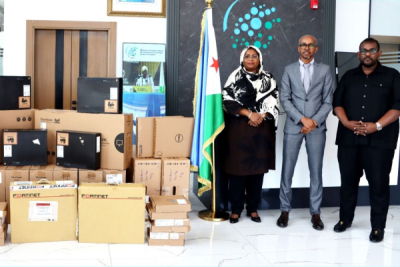Investing in digital infrastructure is a significant step for African development as it is crucial in enhancing government efficiency, improving data management, and fostering economic growth. By integrating advanced technology, Nigeria sets a precedent for other African nations to modernize their operations, support digital transformation, and boost overall development.
Nigeria will launch a state-of-the-art data center with a storage capacity of 1.4 petabytes before May 29, 2024, to house critical national information, including citizens' bio-data. The Minister of Interior Dr. Olubunmi Tunji-Ojo announced this during a meeting with the National Union of Nigerian Associations in Italy (NUNAI) on May 20, a statement from the Interior Ministry dated the same day revealed.
Dr. Olubunmi Tunji-Ojo emphasized that adopting advanced technology would enhance efficiency and accountability across national operations, the statement read.
In its 2019 publication titled “Nigeria Digital Economy Diagnostic: A Plan for Building Nigeria’s Inclusive Digital Future,” the World Bank assessed that “Nigeria is capturing only a fraction of its digital economic potential and will need to make strategic investments to develop a dynamic, transformative digital economy.” In line with this, in 2015, the Nigeria Communications Commission proposed transitioning the economy into a digital economy through investments in digital infrastructure.
The launch of this data center directly addresses this assessment, marking a strategic investment in Nigeria's digital infrastructure. This move is expected to unlock more of Nigeria's digital economic potential, promoting an inclusive and robust digital economy.
Hikmatu Bilali



















